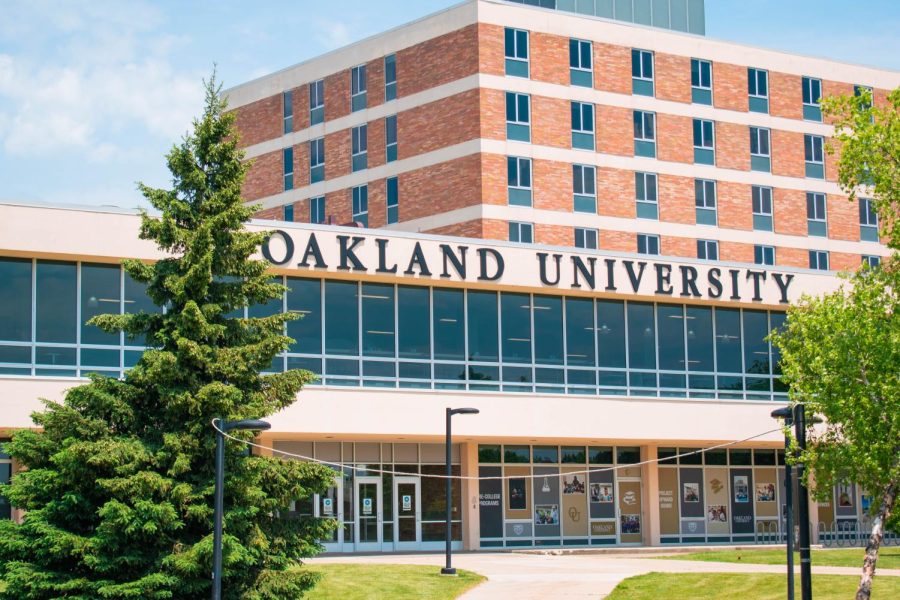OU reimagines transfer student accessibility in enrollment
Oakland University has upgraded its welcome mat. Michigan enrollment initiatives have prompted the Oakland County college to make its transfer program more accessible than ever.
Within the last year, OU has expanded its allotment of transferrable credits to allow eligible students a quicker path to graduation.
“We have eliminated the limit on transfer credits that are coming in from a community college,” said Shane Lewis, director of OU admissions. “Formerly, only half of a student’s bachelor’s degree could come in from a community college. As of this [past] fall, that has changed.”
The policy shift allows students transitioning to Oakland to transfer an unlimited number of credits from another college. The student can then graduate after completing a minimum of 45 credits from OU.
“We’re trying to make it so that we’re honoring the work that the transfer students are doing at the community college – not leaving any credit behind,” Lewis said. “Being more friendly to transfer students has gone a long way in showing that we value a transfer student and that we’re here to support them through graduation.”
OU has also initiated 40 articulation agreements and 18 reverse transfer agreements with various community colleges. Articulation agreements offer students predetermined amounts of coursework that will transfer directly into their major, while reverse transfer agreements allow students to transfer OU credits back to a community college.
“Every semester we’re taking gobs of credits and basically transferring them back to 18 community colleges in Michigan,” Lewis said. “These students are getting retroactively awarded these associate degrees to honor the work that they’re doing in completing these credentials.”
These policy updates come as the number of potential transfer students in Michigan has risen throughout 2020-21.
Community college enrollment has surged throughout the state as a result of Governor Whitmer’s Sixty by 30 project, which aims to increase the number of accredited Michigan residents from 45% to 60% by the year 2030.
The project spearheaded Futures for Frontliners, a scholarship opportunity that granted free high school and community college tuition to individuals who acted as frontline workers during the state-wide shutdown of 2020.
Michigan Reconnect is another Sixty by 30 effort that provides adults 25 years and older free community college tuition and skills scholarships.
Dave Murray, communications director of Grand Rapids Community College, attributes these state programs as a certain factor in GRCC’s 4% enrollment increase over 2021.
“About 3,000 of the 12,685 students enrolled in credit-seeking courses during our fall 2021 semester were enrolled through Futures for Frontliners or Michigan Reconnect,” Murray said.
In light of statewide programming, Oakland University is making its policies more accessible for community college graduates who may want to take their degrees a step further.
“I think our hope is that the word is getting out there that we are a transfer-friendly destination and we want to stay that way,” Lewis said. “And no matter where you start, hopefully you can complete your degree with us here at Oakland – and then maybe stick around for a grad degree, too.”
Lewis maintains that the OU difference is an evident experience. He notes that the university faculty and staff strive to show students that they’re not numbers or statistics, but truly cared for.
“That’s what we’re really trying to share – that this is a really great place to be,” he said. “It’s not just because of what you’re going to get at the end. It’s because of everything you’re going to get in the middle.”











